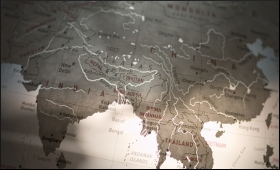|

|
Global tax regime must protect developing nations: India
|
|

|
|
| Top Stories |
 |
|
|
|
Hadra Ahmed | 20 Jul, 2015
India has pitched for a global tax regime built into the UN process, rather than being looked at from the point of view of rich countries, in a bid to curb illegal financial flows from the developing world running into some USD 200 billion annually.
"As far as Global Tax is concerned it is important to understand why this is important for India and the developing world. As of now Official Development Assistance (ODA) globally is in the range of about 135 billion dollars," said India's Union State Minister for Finance Jayant Sinha.
"There are various estimates... If you look at tax revenues or illicit financial flows that must be captured within the developing world, those run well over USD 200 billion by most accounts," Sinha told the 3rd conference on International Financing for Development (IFD) here.
"That's why we were pushing so hard -- that we move towards the establishment and formulation of a global tax policy from an OECD process to a UN process because OECD process is dominated by rich countries where the developing world has less of a say."
At the conference, India also represented the G77 countries and along with China, it reflected a strong and shared stand on the issues of international tax architecture where it disagreed with the Organisation for Economic Cooperative and Development (OECD), a club of rich nations.
Indian interlocutors also wanted the conference to go beyond mere talks on development financing to aim at the larger picture of creating a global system conducive to development itself for a much faster and inclusive economic growth in poor and developing countries.
"We have managed to forge a global consensus on some very crucial issues related to the need for balanced development and ensured a commitment of 0.7 percent of GDP from developed nations for ODA. We were able to forward our voice. So the overall outcome has been successful," said Sinha.
The minister said India has outlined that unless a stronger tax base is built and due tax revenue is captured in the developing world, the rich countries genuinely cannot progress. Therefore, it was in the interests of the entire global community for a robust tax base in emerging economies.
Sinha said if one moves to a UN process on this with intergovernmental consultations there would be a more equitable and responsive tax policy for the developing world, he said, while pushing for two upcoming conferences in New York and Paris on poverty, inequality and change.
Countries are deliberating to find the estimated USD 2.5 trillion that is needed each year to meet the proposed Sustainable Development Goals (SDGs) that are successors to UN-mandated Millennium Development Goals (MDGs) programme adopted in 2000.
Sinha said the move to give the UN body on taxation issues a more governmental representation and equitable geographical representation will greatly strengthen the voice of developing nations.
"There are pressing issues when it comes to tax discussion. But they are not being given the proper attention they require? Why are these issues not being addressed is what mainly India focused on", said Vanessa Inko-Dokubo, policy advisor at Oxfam International.
Counsellor Amit Narang from the Permanent Mission of India to the UN said this was the perfect opportunity for ensuring a global financial system that is pro-development.
The story does not end here, said Sinha, who ensured India's due role in the "Addis Ababa Action Agenda". He said this was just one more step in such engagements, and that the process must continue to ensure an equitable global tax policy reflecting the needs of developing nations.
|
|
|
| |
|
|
|
|
|
|
|
|
|
|
|
|
|
|
| |
| Customs Exchange Rates |
| Currency |
Import |
Export |
US Dollar
|
66.20
|
64.50 |
UK Pound
|
87.50
|
84.65 |
Euro
|
78.25
|
75.65 |
| Japanese
Yen |
58.85 |
56.85 |
| As on 13 Aug, 2022 |
|
|
| Daily Poll |
 |
 |
| PM Modi's recent US visit to redefine India-US bilateral relations |
|
|
|
|
|
| Commented Stories |
 |
|
|
|
|
|
| |
|